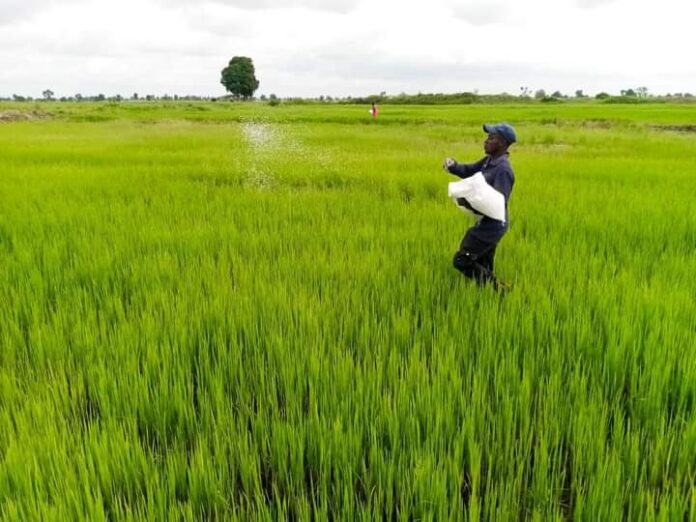By: Abdulkadir Abubakar
The Problem: Inadequate rice production in Nigeria led to the importation of the item to Nigeria. Trillions of naira were reportedly spent in Nigeria to import rice into the country until 2015 when the Federal Government came up with the Anchor Borrowers Programme to support local rice farmers. The program was designed to boost local rice production and reduce dependence on imported rice. However, the program has failed to yield the desired results. Instead of benefiting actual farmers, some officials in connivance with some political farmers hijacked the initiative, funneling loans to friends and associates who aren’t farmers.
Response: The Federal Government of Nigeria Through the Central Bank of Nigeria (CBN) came up with the Anchor Borrowers Programme to support rice farmers under the Rice Farmers Association of Nigeria (RIFAN). The program is designed for one farmer, one hectare of land, with loan facilities in the form of cash, fertilizer, seeds, herbicides, pesticides, knapsack sprayers, and empty sacks amongst others. At the end of the harvest, a farmer is expected to harvest between 75 – 80 bags of paddy rice, in which he is expected to pay back the loans with 13 bags of rice and the remaining becomes his.
Evidence of impact:
Research has shown that the ABP has had minimal impact on rice production in Nigeria. Studies in the Lavun Local Government Area of Niger State revealed that the program has not significantly improved rice yields or alleviated poverty among smallholder farmers. The program’s mismanagement has led to widespread disillusionment among genuine farmers. It is also observed that it is one of the factors that has led to the increase in prices of local rice, because instead of growing the commodity and returning some to Government Food reserves, instead, they were buying from the market to pay back the loans, after being dragged to court.
Insight: Ali Chado is a farmer, he said that they often hear about many agricultural intervention programs to which they apply, but at the end of the day the officials in charge will only shortlist and give to their families and friends who are not farmers. Also, Muhammad Ndabini, who works with the Niger Fadama office in Minna, attributes the failure of some agric intervention programs to shortchanging of the farmers by officials “For example, where a farmer is entitled to 5 bags of fertilizer he will be given only 1 bag or 3 liters of agrochemical, he will be given 1 liter and the remaining one is sold by the officials, so if farmers get to know this, they will not like to pay back the loans”. He said most of these things happened at the Local level.
Isah Yabagi Zakari, is a retired Agric Extension Agent, With Niger State Agricultural Mechanisation and Development Authority (NAMDA), He said a lot of programs have been rolled out for farmers by Government, but have always failed, due to hijack by some officials and politicians. He said some officials will collect and use people’s bank details to obtain these facilities but sell them out to Agro dealers.” It is a very good initiative, to assist farmers, the few that utilized the facilities judiciously actually gained a lot from it, but many didn’t pay the loans after benefiting from it, which usually end up in courts” He therefore advised that such programs should be redesigned to include Community leaders so serve as guarantors and the farmers should be properly enlightened.
Limitations:
Shortchanging of Farmers by some officials, some of the beneficiaries are not real Farmers, and beneficiaries are not paying back the loans.


